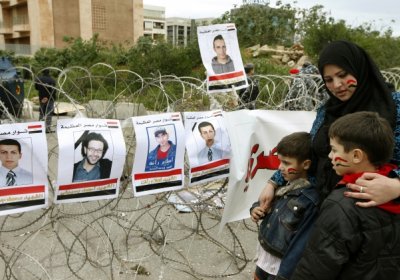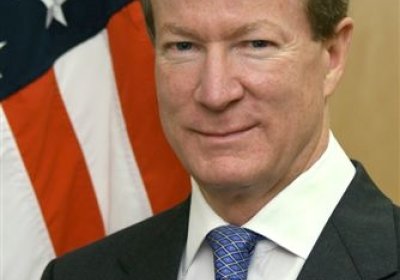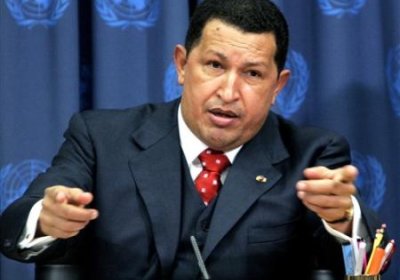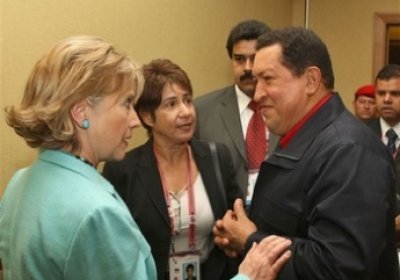The Venezuelan government will begin a process of recovering 300,000 hectares of land during April that have been in the hands of an unnamed English company, Venezuelan President Hugo Chavez said in an interview during his trip to Uruguay.
Chavez said the process of taking back or “recovering” land had been fundamental to the revolutionary process led by his government. He said this especially so that “worker control” could “prevent companies from exploiting the land and workers, and getting rich and taking the earnings overseas”.
Venezuela
As the wave of popular uprisings has spread across the Arab world, a flurry of articles have appeared suggesting Venezuelan President Hugo Chavez could be the next “dictator” to be overthrown.
Such arguments follow a pattern in the corporate media of slandering the Chavez government and the revolutionary process it leads.
They aim to conceal the real threat that haunts imperialism: that the Arab world may follow the example of Venezuela and other countries in Latin America — and break away from Western hegemony.
Venezuelan foreign ministry official statement The president and commander-in-chief of the Bolivarian Republic of Venezuela, Hugo Chavez, in the name of the Venezuelan people, applauds the genuine lesson of political and democratic maturity that the courageous Egyptian people have brought before the eyes of the world.
Venezuela marked the 12th anniversary of President Hugo Chavez’s first oath of office in February 1999 on February 2.
Chavez won presidential elections in December 1998 on a pro-poor program that pledged to break the corrupt, two-party system that had dominated Venezuela since 1958.
To commemorate the occasion, Chavez and supporters held four televised site visits in Caracas. The visits highlighted gains in education, food, health and people’s power that have occurred as part of the “Bolivarian revolution” the Chavez government is leading.
Venezuelan President Hugo Chavez expressed his support for workers in a dispute at a Venezuelan Coca-Cola plant conflict in a televised address on February 4.
“If Coca-Cola doesn’t want to comply with the constitution and the law, well, we can live without Coca-Cola,” he said to cheers from the crowd.
Chavez was speaking in Valencia, the capital of Carabobo state, where 1230 workers are striking in a bottling and distribution plant of Coca-Cola Femsa.
With the world beginning to feel the initial effects of changing weather patterns due to climate change, governments around the world are faced with immense challenges to ensure the safety of their citizens.
The lack of action from most governments and key decision-makers reflects policies that put profitability ahead of human security.
This blind and greedy agenda means the great majority of the world’s people are left defenceless.
Venezuela stands in stark contrast to this norm.
Venezuela’s petroleum corporation in the US, Citgo, announced on January 27 the start of its sixth year providing subsidised heating oil to low-income people in the US.
An estimated 132,000 households across the US will benefit from the program this year, amounting to US$60 million of savings.
The program is carried out with US non-profit group Citizens Energy Corporation. Joseph P. Kennedy II said: “Every year, we hear from families who struggle each and every day to put food on the table and heat their homes.
More than 1000 members of the United Socialist Party of Venezuela (PSUV) met with President Hugo Chavez on January 19 and decided on five key strategic lines for the next two years.
The discussion included recognition of important weaknesses in the party.
Chavez, who is also president of the governing PSUV, presented the document, Strategic Lines of Political Action of the PSUV for 2011-2012, to the “National Assembly of Socialists” in Vargas state.
About 1440 party leaders were present.
A fair portion of the more than 1600 United States State Department documents WikiLeaks had published by mid-December referred to the ongoing US efforts to isolate and counter the left-wing, anti-imperialist Venezuelan government.
After Hugo Chavez was elected president in 1998, Washington engaged in numerous efforts to overthrow him. These have included a failed coup d’etat and an oil industry lock-out in 2002, worldwide media campaigns and various electoral interventions.
Venezuela’s president Hugo Chavez has passed a series of laws to help people affected by floods, including big investment in new housing.
In response to the U.S. State Department’s condemnation of the unauthorized release of more than 250,000 diplomatic cables by the website Wikileaks, Venezuelan President Hugo Chavez praised the whistleblower site and called for the resignation of U.S. Secretary of State Hillary Clinton.
“Nature is our home and is the system of which we form a part, and therefore it has infinite value, but it does not have a price and is not for sale” said a November 3-5 meeting of the Bolivarian Alliance for the Americas (ALBA) nations of Venezuela, Bolivia, Cuba, Ecuador and Nicaragua.
The meeting rejected the privatisation of nature, in which “nature is seen as ‘capital’ for producing tradable environmental goods and services … and assigned a price so that they can be commercialised with the purpose of obtaining profits”.
- Previous page
- Page 56
- Next page








